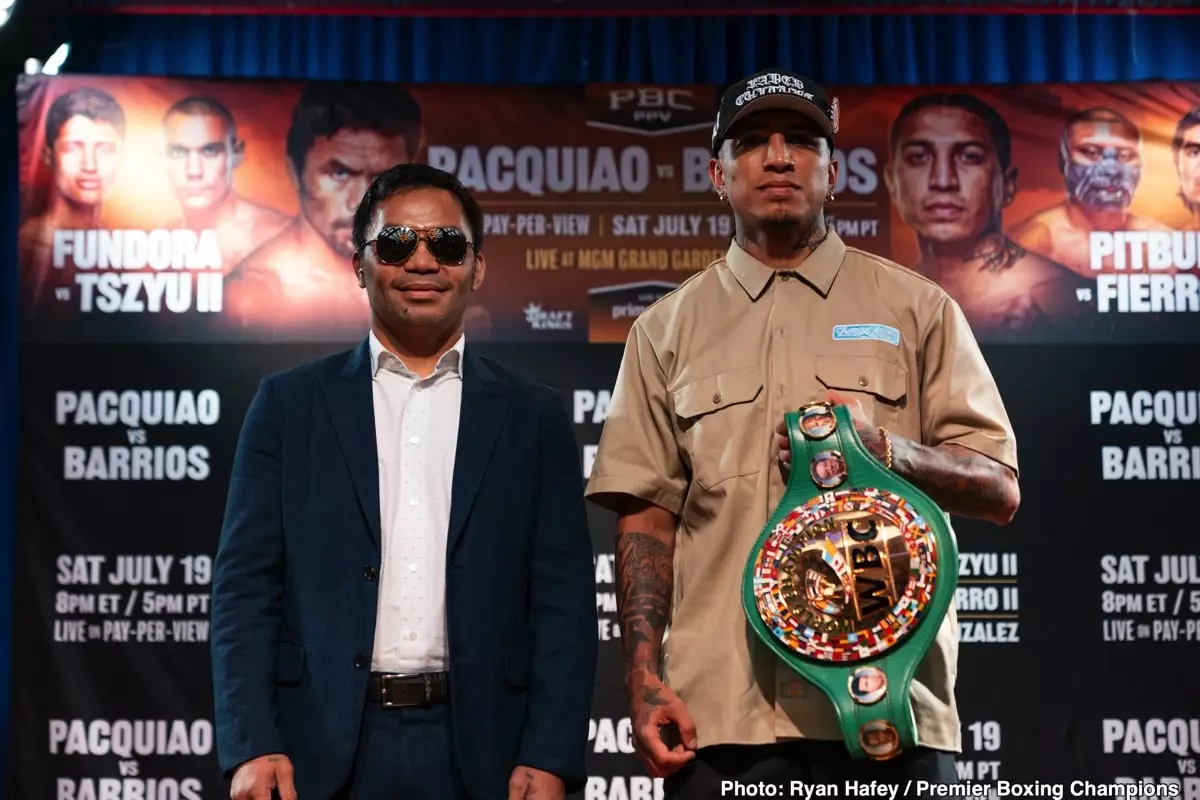Boxing enthusiasts are buzzing with opinions about the highly anticipated July fight between defending WBC welterweight champion Mario Barrios and the legendary Manny Pacquiao. This matchup has sparked various debates within the boxing community, particularly regarding the fairness of Pacquiao’s return to the ring after a long hiatus without victory. Notably, boxing analyst Jeff Mayweather recently expressed his strong sentiments on this clash, describing it as more of a “money-grab” than a legitimate title challenge, a viewpoint that merits further exploration.
The Perception of Injustice
Many fans and fighters feel that Pacquiao’s direct path back to a title shot lacks fair competition for the current up-and-coming fighters who have dedicated themselves to climbing the ranks. Jeff Mayweather’s insights suggest a discontent rooted not just in boxing politics but a strong belief in meritocracy within sports. His statements underline an important debate: should a fighter with a six-year hiatus from winning come back and immediately challenge for a title? For many, this feels like an affront to those who battle through both wins and losses, working tirelessly for their deserved opportunities.
Mayweather expressed his admiration for Pacquiao but couldn’t shake the feeling that something was amiss. Calling it “shocking” and “unfair,” he articulated a sentiment many share among the ranks of active competitors striving for recognition and reward. This raises further questions about the criteria and standards upheld by boxing authorities in sanctioning such a fight. Should legacy take precedence over current form, especially when it comes to title bouts?
A Mixed Bag of Predictions
Despite his critical views on the matchup’s fairness, Mayweather still believes that Pacquiao could emerge victorious against Barrios. This contradictory stance paints a complex picture of how fighters and analysts navigate the realm of personal history, current skill set, and the allure of legacy. What is particularly intriguing is Mayweather’s acknowledgment of both the financial motives behind Pacquiao’s return and the desire to bolster an already illustrious career.
Of course, age plays a crucial role in the dynamics of this fight. At 46, Pacquiao is not only facing the challenge of a physically demanding sport but also the implications of time against a younger opponent in Barrios. However, the unique skill set and experience Pacquiao brings to the ring arguably make him a formidable adversary, regardless of his age. The duality of youth versus experience creates an electrifying tension that adds to the fight’s intrigue.
Legacy and Reward
In the end, the true motivations behind Pacquiao’s return are multifaceted. Whether driven by a genuine need for monetary gain or an unwavering desire to continue etching his storied legacy, he encapsulates what it means to be a champion in boxing. The episode raises fundamental questions about the sport and its ethics. Should individuals with a storied past be allowed to leapfrog over fresher talent? Or does the allure of fanfare and historic precedent supersede such concerns?
As the fight date approaches, fans and analysts alike will undoubtedly be watching closely, waiting to see not just who wins, but what the implications of this fight will mean for the future landscape of boxing. The outcome may very well redefine how we view legacy and opportunity within this challenging sport.

